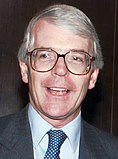1996 Ordennyan general election: Difference between revisions
No edit summary |
No edit summary |
||
| Line 74: | Line 74: | ||
| leaders_seat3 = Barkerud | | leaders_seat3 = Barkerud | ||
| popular_vote3 = | | popular_vote3 = | ||
| percentage3 = | | percentage3 = 14% | ||
| seats_before3 = | | seats_before3 = | ||
| swing3 = {{increase}} | | swing3 = {{increase}}5.6% | ||
| last_election3 = 20 seats, 8.4% | | last_election3 = 20 seats, 8.4% | ||
| seats_needed3 = | | seats_needed3 = | ||
Revision as of 01:48, 26 December 2021
This article is incomplete because it is pending further input from participants, or it is a work-in-progress by one author. Please comment on this article's talk page to share your input, comments and questions. Note: To contribute to this article, you may need to seek help from the author(s) of this page. |
| |||||||||||||||||||||||||||||||||||||||||||||||||||||||||||||||||||||||||||
All 650 seats in the Chamber of Deputies 326 seats needed for a majority | |||||||||||||||||||||||||||||||||||||||||||||||||||||||||||||||||||||||||||
|---|---|---|---|---|---|---|---|---|---|---|---|---|---|---|---|---|---|---|---|---|---|---|---|---|---|---|---|---|---|---|---|---|---|---|---|---|---|---|---|---|---|---|---|---|---|---|---|---|---|---|---|---|---|---|---|---|---|---|---|---|---|---|---|---|---|---|---|---|---|---|---|---|---|---|---|
| |||||||||||||||||||||||||||||||||||||||||||||||||||||||||||||||||||||||||||
| |||||||||||||||||||||||||||||||||||||||||||||||||||||||||||||||||||||||||||
The 1996 Ordennyan general election was held on 6 June 1996. The incumbent governing Conservative Party led by Prime Minister Arvid Magnusson was defeated in a landslide by the Labour Party led by Fredrik Månsson.
The political backdrop of campaigning focused on public opinion towards a change in government. The Labour Party leader, Fredrik Månsson focused on transforming his party through a more centrist policy platform, with promises towards constitutional reform, fiscal responsibility, and Månsson's decision to nominate more female politicians for constituencies. Magnusson sought to rebuild public trust in the Conservatives following a series of scandals, including the events of Black Wednesday in 1992, through campaigning on the strength of the economic recovery following the early 1990s recession, but faced negative party opinion regarding how long they had been in government.
The overall result of the election ended 17 years of Conservative government, in their worst defeat since 1855.




